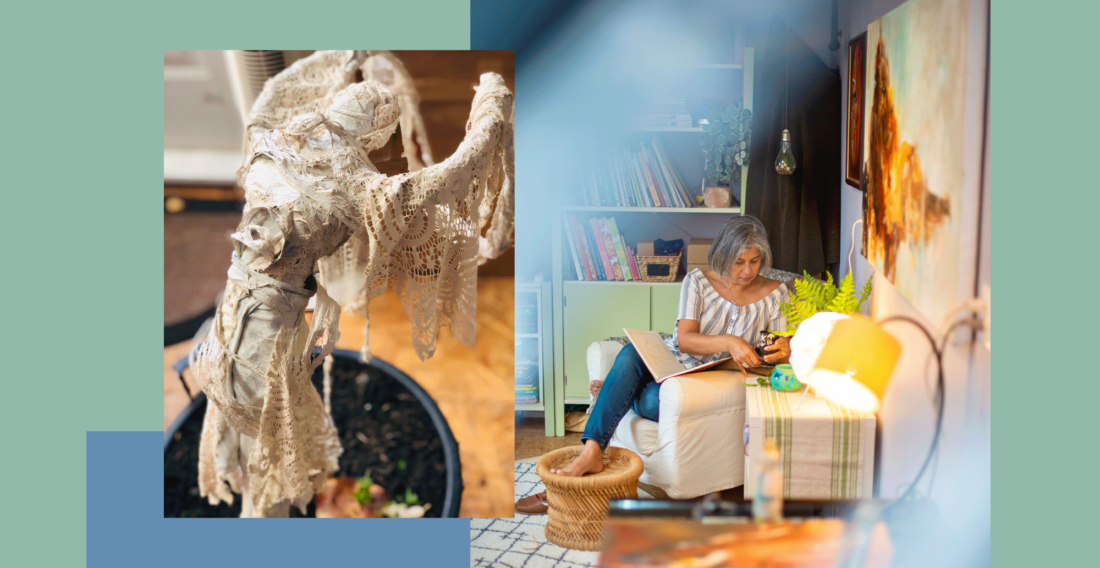The 9 Habits of Creative, Effective People
Perhaps you are like me and shrink at the thought of obeying by a regular routine. Maybe we are opposites and you love a consistently structured day– either way, you’re here with a question on your mind: “What are the habits of creative people– and how can I become one of them?”
In this article, I will go over how artists and creative individuals can structure their day for maximum creative output and personal contentment. These include:
- Setting general goals for the week
- Understanding your mood for the day
- Working on daily inspiration
- Trying new mediums
- Scheduling time to get non-creative work done
- Consider hiring help
- Sleep habits
- Don’t get stuck, get inspired
- Creative output and expectations
Setting general goals for the week
Intuitive, but true– I start my week by generally planning what work needs to get done. For example, this week, I am working on the finishing touches of my upcoming book and two commissioned pieces. Knowing if I’m working with oil or acrylics, I’ll typically plan out an entire day and focus on that medium. If I’m working with acrylics, I know I have to be quick and focus on one task or the paint will dry. With oils, it can take quite a bit of time so I know I can be working on a few pieces at once.
Understand your mood for the day
For some creatives, producing art every day is essential. Stephen King says he writes every day, with no exceptions–even on birthdays and holidays! I am not Stephen King. As much as I love painting, there are some days when I just do not feel like picking up a brush. Those days, my art suffers. I give myself grace because I know on those days I can focus on other things, like talking to clients, taking care of administrative things, or other projects.
For me, staying passionate about what I do means sometimes taking a break to recharge if I need it. So if you’re feeling overwhelmed by questions from clients or other pressing deadlines, then take time to refocus and you will come back to your artwork with a clearer mind and spirit.
Working on daily inspiration
Now, just because you decide you don’t feel up to creating does not mean you can let your muse go to sleep. Wake her up by taking in new lessons from reading, audiobooks, podcasts, or online tutorials. When I can’t paint, I like to visit the works of masters from the comfort of my home. Staying inspired every day is your job as a creative! Although output can fluctuate, the amount of energy you spend on staying inspired should not. Stay consistent with reading new materials, music, or podcasts and you will find your muse energized at all times.
Trying new mediums
In a previous article, I described the characteristics of creative people. One of these characteristics is being open to trying new things. Make it a habit to take a different route on your commute to work or try a different item on the menu other than your all-time favourite. Staying open every day will lead to new experiences and result in new ideas, perspectives, and connections.
Scheduling time to get non-creative work done
Okay, this is advice I have not quite mastered yet, but it is good enough to make the list. By carving out an afternoon or morning a week to get all of your tedious administration out of the way, you’ll preserve your “maker time” and get more accomplished.
Consider hiring help
As a professional creative, you are also running a business. Managing your time, expenses, and clients can be consuming without having to produce focused work. Consider hiring someone to help with social media, website maintenance, accounting, or even sales. Art agents and galleries take a cut of your profits, but they can also help you stay focused on doing the work you love doing.
Sleep habits
I have made peace with the fact that I am not going to wake up at 5 AM every day to start working. It is just not who I am, or who I want to be. My priority is my wellbeing and for that, I know I need a good sleep and slow morning wake up with a fabulous cup of Chai (Parsee Chai, to be exact!) It is okay to listen to your body’s internal clock and wake up when it is right for you. Picasso woke up at 11 A.M. and would start painting only in the afternoon!
Don’t push yourself to fit into a mould of productivity for optimal creativity. It is key to listen to yourself and your own habits.
Don’t get stuck, get inspired
Creative blocks happen to everyone. It is why creating every day can be exhausting. Regardless of what you make and how much you love it, there will be days where it can feel impossible to get anything done. Here is a 1-minute trick I like to do whenever I am feeling in the mood to make but unsure of where to start.
Creative output and expectations
Just because it took you two hours to finish a painting does not mean it can’t be just as good, or even better than a painting you may have spent 30 + hours on! Have high expectations for yourself, but don’t judge how good a work is on how much time you have spent on it. Use your judgement, not your clock to know when a piece of work is “done” and see your output go up!
In a world asking for optimization, the artist can choose to be oppressed or liberated. With balance, delegation, and goal setting, the modern artist can find themselves freer than ever before. I hope you try these tips and plan for your best creative output yet!
- From your point of view, how can creativity be good for business?
- How does creativity make its way into your everyday life?
- When was the last time you tried a new creative medium? What was that like?
- This article is all about habits. Do you have any advice for making time for yourself with a busy schedule?



